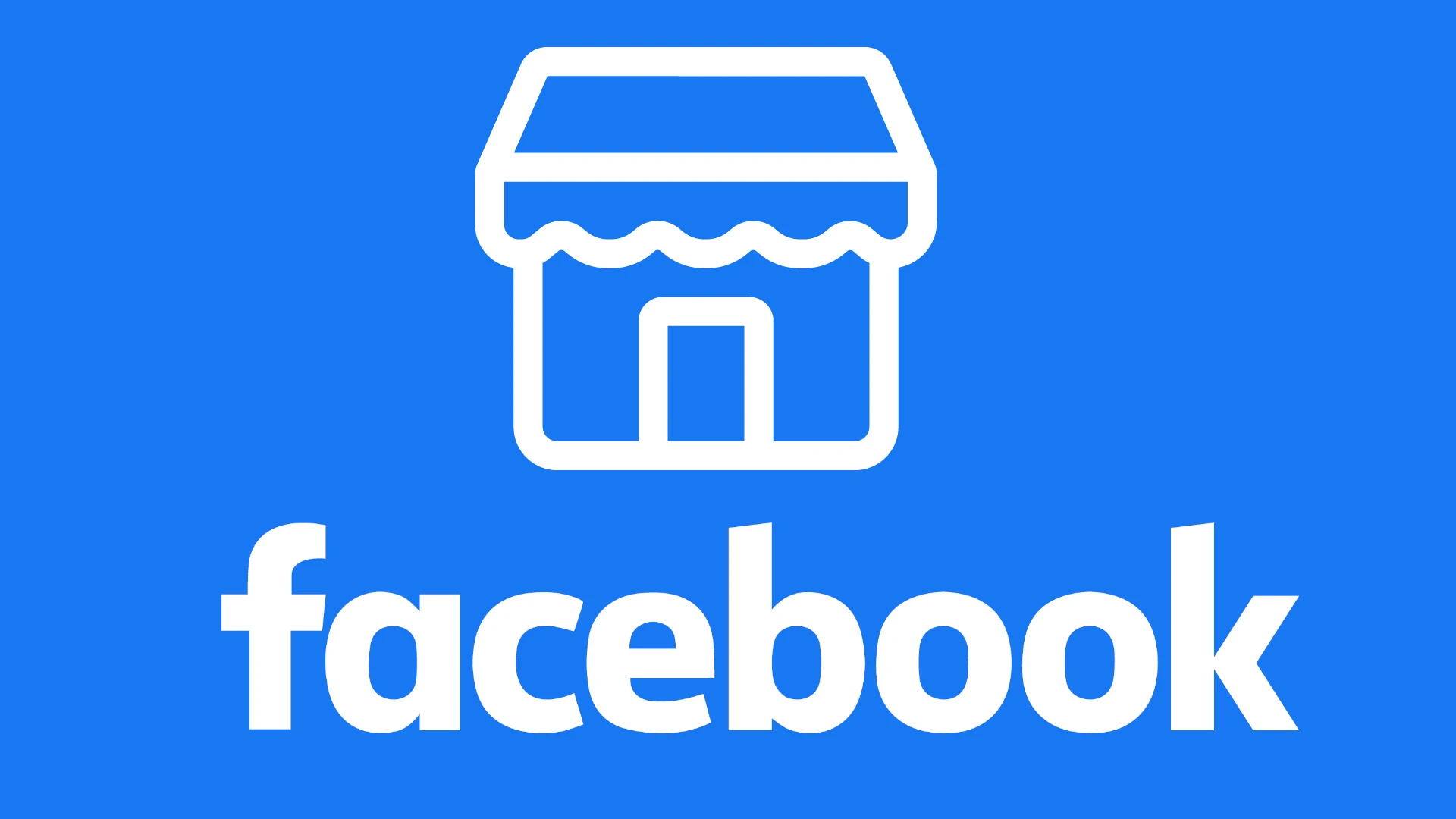Facebook Marketplace offers a convenient way to buy and sell items locally, but you might be wondering if Venmo is a safe payment option for these transactions. Using Venmo for Facebook Marketplace can be safe if you follow best practices and understand the risks; but beware, there are a lot of scams out there.
Venmo is a popular digital payment app that lets users send money quickly. It’s easy to use, but it doesn’t offer the same protections as some other payment methods. Scammers sometimes try to take advantage of Venmo users on Facebook Marketplace.
To stay safe, it’s important to know how Venmo works and be aware of common scams. Meeting in person and using cash is often the safest choice for local sales. If you do use Venmo, make sure you’re dealing with a real buyer or seller before sending any money.
Venmo and Facebook Marketplace: A Safe Combination?
Facebook Marketplace has become a popular platform for buying and selling goods locally. It’s convenient, but it also raises questions about payment security. Venmo, a popular peer-to-peer payment app, is often used for Marketplace transactions. But is it safe? Let’s explore the potential risks and how to protect yourself.
Understanding the Risks
While Venmo offers buyer and seller protection for eligible purchases, it’s important to understand that these protections may not apply to transactions on Facebook Marketplace. This is because Marketplace transactions often involve goods or services that fall outside of Venmo’s Purchase Protection Program. This leaves both buyers and sellers vulnerable to scams.
Common Scams
- The Fake Buyer: A scammer poses as a buyer, sends a fake Venmo payment notification, and then disappears with the goods.
- The Overpayment Scam: The scammer sends a payment that’s more than the asking price and then asks for the difference to be refunded. The original payment turns out to be fraudulent, leaving the seller out of pocket.
- The “Friends and Family” Scam: The scammer convinces the seller to accept a Venmo payment sent as “Friends and Family,” which offers no buyer protection and makes it difficult to get a refund.
Staying Safe
Despite the risks, you can still use Venmo on Facebook Marketplace safely by following these tips:
- Meet in Person: Whenever possible, meet the buyer or seller in person to exchange goods and payment. This helps prevent scams and ensures you’re dealing with a real person.
- Verify Payment: Always check your Venmo account to confirm that the payment has been received and is not pending or canceled.
- Avoid “Friends and Family” Payments: Only accept payments sent as “Goods and Services” on Venmo. This provides some buyer protection and makes it easier to dispute fraudulent transactions.
- Be Wary of Overpayments: If someone sends you more money than the asking price, be suspicious. It’s likely a scam.
- Trust Your Instincts: If something feels off about a transaction, don’t proceed. It’s better to be safe than sorry.
Alternatives to Venmo
If you’re uncomfortable using Venmo on Facebook Marketplace, consider these alternatives:
- Cash: Cash is still the safest and most secure way to pay for goods in person.
- Facebook Pay: Facebook Pay is integrated into Marketplace and offers buyer and seller protection for eligible transactions.
- PayPal: PayPal is another popular online payment platform that offers buyer and seller protection.
Remember, staying informed and taking precautions can help you have a safe and successful experience on Facebook Marketplace.
Key Takeaways
- Venmo can be used safely on Facebook Marketplace with caution
- In-person cash transactions are safest for local sales
- Be aware of common Venmo scams to protect yourself
Understanding Venmo and Its Use in Facebook Marketplace
Venmo is a mobile payment app that lets users send and receive money. It’s become popular for buying and selling on Facebook Marketplace. But there are some key things to know about using Venmo safely.
How Venmo Works
Venmo links to your bank account or debit card. You can then send money to other Venmo users. To pay someone:
- Open the Venmo app
- Tap “Pay or Request”
- Enter the person’s name, phone, or email
- Type the amount
- Add a note (optional)
- Tap “Pay”
Money moves quickly between Venmo accounts. But transfers to your bank can take 1-3 business days.
On Facebook Marketplace, buyers often want to use Venmo. It’s fast and easy. But sellers should be careful. Scammers sometimes use fake Venmo payments.
Venmo’s Security Features
Venmo has several safety measures:
- Data encryption
- PIN code or fingerprint login
- Two-factor authentication
- Phone number verification
Venmo also watches for odd activity. They may block strange transactions. But Venmo can’t always stop scams. Users need to be alert too.
Some key tips:
- Only pay people you know and trust
- Check payment status in your Venmo account
- Never share your login info
Comparison With Other Payment Methods
Venmo is one of many payment options for Facebook Marketplace. Here’s how it stacks up:
| Method | Pros | Cons |
|---|---|---|
| Venmo | Fast, easy to use | Less buyer/seller protection |
| PayPal | Good protection, widely accepted | Fees for some transactions |
| Cash | No fees, immediate | Meet-up required, safety risks |
| Bank transfer | Secure | Can be slow |
PayPal (Venmo’s parent company) offers more protection for buyers and sellers. But many people prefer Venmo’s simple app. Cash is safe for small, in-person sales. Bank transfers work well for larger amounts.
Understanding Venmo Scams on Facebook Marketplace
On Facebook Marketplace, scammers often target sellers who advertise the fact that they take/accept Venmo using tried and true methods. Some of these scams include sending fake payments or paying too much to gain your trust, then asking for a refund (leaving you at a loss when the original payment doesn’t go through). You can protect yourself by understanding these scams, but remember to always be aware that scammers come up with new and innovative schemes that may not have been seen before.
How Venmo Scams Work
Scammers employ various tactics on Facebook Marketplace, but some common Venmo scams include:
- Fake Buyer Overpayment: The scammer expresses strong interest in your item and convinces you to accept a Venmo payment. They claim to have accidentally sent more money than the agreed price and request you to refund the difference. However, the initial payment is fraudulent, and you end up sending your own money.
- Fake Account: The scammer creates a fake Facebook profile and expresses interest in your item. They’ll pressure you to use Venmo and might even send a fake payment screenshot. Once you hand over the item, the fake account disappears, leaving you empty-handed.
- Fake Business Account Setup: The scammer convinces you to create a Venmo business account to receive a larger payment. They might send a seemingly legitimate email (often a fake) claiming insufficient funds and requesting you to return a portion of the money to activate the account.
How to Protect Yourself
Staying vigilant can shield you from Venmo scams on Facebook Marketplace. Here are some key tips:
- Cash on Pickup: For in-person transactions, insist on cash payment at the time of pickup. This eliminates the risk of fraudulent Venmo transactions.
- Verify Accounts: If considering Venmo for online transactions, ensure the buyer’s Facebook profile seems genuine. Look for friend connections, reviews, and a history of activity.
- Never Refund Before Receiving Payment: Don’t be pressured into returning any money via Venmo before you receive and verify the actual payment for the item.
- Report Suspicious Activity: Report any suspicious profiles or messages to Facebook. Additionally, if you encounter a scam, report it to Venmo for further investigation.
By following these tips and remaining cautious, you can navigate Facebook Marketplace with confidence and avoid falling victim to Venmo scams.
Remember: If something sounds too good to be true, it probably is. Trust your instincts and prioritize safe transactions.
Best Practices for Safe Transactions on Facebook Marketplace
Staying safe on Facebook Marketplace requires caution and smart practices. Buyers and sellers can protect themselves by spotting warning signs, communicating carefully, and taking precautions for in-person meetings.
Recognizing Red Flags
Watch out for deals that seem too good to be true. Be wary of sellers who refuse to meet in person or push for quick sales. Check profiles for signs of fake accounts, like few friends or little activity. Be careful of buyers who offer more than the asking price or want to use payment methods outside of Facebook. Don’t click links sent by strangers, as they may be phishing attempts. Trust your gut – if something feels off, it probably is.
Communicating With Buyers and Sellers
Keep all talks on Facebook Marketplace’s chat system. This helps track your conversations and keeps your personal info safe. Be clear about item details, price, and meet-up plans. Ask questions if anything is unclear. Don’t share private info like your address or bank details. If a buyer or seller acts pushy or odd, it’s okay to end the chat. Stay polite but firm in your communications.
Meeting In-Person for Transactions
Choose a safe public spot for exchanges, like a police station parking lot or busy coffee shop. Bring a friend or family member with you. Meet during the day when possible. Check items closely before buying. For big items, meet at a bank so you can use secure payment options. Trust cash for most deals – it’s simple and safe. If you must go to someone’s house, bring a buddy and tell others where you’re going. Safety comes first in all meet-ups.
Recognizing and Avoiding Common Venmo Scams on Facebook Marketplace
Scammers use tricks on Facebook Marketplace to steal money through Venmo. Learn how to spot these scams and keep your money safe.
Phishing and Fake Venmo Emails
Scammers send fake emails that look like they’re from Venmo. These emails try to get your login info. Here’s how to spot them:
- Check the sender’s email address. Real Venmo emails end in @venmo.com.
- Look for spelling mistakes and bad grammar.
- Be careful of links in the email. Don’t click them.
- Real Venmo emails won’t ask for your password.
If you get a weird email about a Venmo payment, log in to your account directly. Don’t use links in the email. Check your account to see if the payment is real.
Overpayment Scams and Fake Transactions
Some scammers try to trick sellers with fake payments. They might say they paid too much by accident. Then they ask for money back. Here’s what to watch out for:
- Always check your Venmo account for real payments.
- Don’t send money back until you’re sure the payment cleared.
- Be careful of buyers who want to pay more than your asking price.
- If a buyer says they paid but you don’t see the money, don’t ship the item.
Scammers might also send fake payment notifications. Always double-check your Venmo balance before sending any item.
Protecting Your Venmo and Facebook Accounts
Keep your accounts safe with these tips:
- Use strong, unique passwords for Venmo and Facebook.
- Turn on two-factor authentication for both accounts.
- Don’t share your login info with anyone.
- Be careful about what personal info you share on Facebook Marketplace.
- Use Venmo for people you know and trust.
- For big sales to strangers, use other safe payment methods.
Set up alerts on your Venmo account. This way, you’ll know right away if there’s any odd activity. If you think you’ve been scammed, tell Venmo and Facebook right away.
FAQs
Is it safe to use Venmo for Facebook Marketplace?
While Venmo can be a convenient payment option for Facebook Marketplace, it’s crucial to proceed with caution. Venmo’s buyer and seller protections may not extend to Marketplace transactions, leaving you vulnerable to scams. Exercise caution, meet buyers or sellers in person whenever possible, verify payments, and avoid “Friends and Family” transactions.
What is the safest payment method for Facebook Marketplace?
The safest payment method for Facebook Marketplace is cash, especially when meeting in person. For online transactions, consider using Facebook Pay, which offers built-in buyer and seller protection. PayPal is another secure option with its own purchase protection policies.
Is it safe to accept Venmo from strangers?
Accepting Venmo from strangers, particularly on platforms like Facebook Marketplace, carries inherent risks. Scammers often use Venmo to trick sellers with fake payment notifications or overpayment schemes. If you must use Venmo, always verify the payment in your Venmo account before handing over any goods.
How safe is Venmo for sellers?
Venmo can be risky for sellers on platforms like Facebook Marketplace. Scammers may use tactics like fake payment notifications, overpayments, or “Friends and Family” payments to defraud sellers. It’s crucial to be vigilant, verify payments, and consider safer payment options like cash or Facebook Pay.
Will Venmo refund money if scammed?
Venmo may offer refunds for eligible transactions under its Purchase Protection Program. However, this protection may not apply to transactions on Facebook Marketplace, as they often involve goods or services not covered by the program. If you’re scammed, contact Venmo support immediately, but be prepared for the possibility that a refund may not be possible.
Which is safer, Zelle or Venmo?
Both Zelle and Venmo carry similar risks when used for transactions on platforms like Facebook Marketplace. Neither platform’s buyer or seller protection policies typically extend to these types of transactions. If safety is your primary concern, consider using cash or a platform-integrated payment method like Facebook Pay.
What is the downside to Venmo?
Venmo’s primary downside, especially for Marketplace transactions, is the lack of robust buyer and seller protection. This leaves users vulnerable to scams and fraudulent transactions. Additionally, Venmo charges fees for certain types of transactions, such as instant transfers and credit card payments.
What is the safest way to accept money from a stranger?
The safest way to accept money from a stranger is cash, especially when meeting in person. If you must use an online payment method, consider using a platform-integrated option like Facebook Pay or a reputable service like PayPal that offers buyer and seller protection.
Can you reverse a Venmo payment?
Generally, Venmo payments are instant and cannot be reversed once they’re sent. However, if you’ve been scammed or there’s an unauthorized transaction, you can contact Venmo support to dispute the payment. The success of a dispute depends on various factors, including the type of transaction and the evidence you provide.







